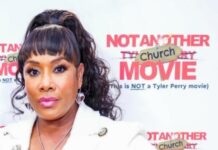
*In this special edition of The Living Legends Series, EURweb.com contributor Gwendolyn Quinn talks with founding member of The Living Legends Foundation, Ray Harris about the organization’s legacy and its silver anniversary.
The organization will recognize seven distinguished honorees in music and media. “I am humbled to be here today to celebrate our 25th anniversary,” says Harris. “I look back at the great work that the individuals in this organization have done to get us to this point. It is gratifying to know that the people we have honored made many significant contributions to black music over the years. To think that we have been a financial link to those in our industry who have fallen on hard times and feel that they have been forgotten. Well, the Living Legends Foundation never forgot them or their service. I congratulate David Linton, the officers and board members for their dedication in keeping the organization going and growing.”
During his illustrious career, music icon, Harris has been recognized with numerous music and entertainment industry awards and honors with over 50 RIAA platinum and gold selling plaques for his extraordinary contributions to music. He has also received numerous civic awards as well. In the late 70s, Harris served as the Division Vice President of Black Music at RCA Records where he positioned the label and artists to unprecedented radio and chart successes. He managed a staff of over 25 employees. Harris and his team created hit records and successful campaigns with Diana Ross, Evelyn “Champagne” King, Stephanie Mills, New Birth, The Main Ingredient, Nina Simone, Brainstorm, George Clinton, Hall & Oates, Jon Lucien, The Whispers, Skyy, Edwin Starr, Lakeside, Shalamar, Dynasty, and others.
After leaving RCA, Harris was named President of Dick Griffey’s Solar Records, a black owned and operated record label based in Los Angeles where he continued the reign of successes with The Whispers, Shalamar, Lakeside, Midnight Starr, The Deele, Dynasty, Carrie Lucas, and Klymaxx.
Harris then headed to Warner Bros./Reprise Records where he was named Senior Vice President of Black Music and Jazz. At his new label home, he oversaw a national staff of thirty employees. The label’s diverse roster included Prince, Miles Davis, Ray Charles, Joe Sample, Chaka Khan, George Benson, Al Jarreau, Quincy Jones, Fourplay, Karyn White, Tevin Campbell, Al B. Sure!, Maze featuring Frankie Beverly, Take 6, Boney James, Keith Washington, Ice T, Big Daddy Kane, Biz Markie, James Ingram, Morris Day & The Time, Roger and Zapp, Earth, Wind & Fire, Bob James, Earl Klugh, Randy Crawford, Pat Metheny, Hiroshima, Color Me Badd, and others.
After eight years at Warner Bros., Harris moved to Sony Music/Epic Records as Senior Vice President of Black Music. The label’s superstar roster included Michael Jackson, Luther Vandross, Babyface, Brownstone among others. Harris later formed Harr-Ray Entertainment and served as a consultant for recording artists in both the domestic and international marketplace.
Harris is now enjoying retirement by spending time with his family which includes six grandchildren. “Retirement is a learning process. You have to evaluate what you want to do with your free time,” says Harris. “Once you figure that out, you discover that you do whatever you want to do with that time. Now, my greatest joys are traveling, spending time with my wife and family and pursuing activities that interest me.”
Gwendolyn Quinn: As one of the founders of the Living Legends Foundation in 1991, tell our readers why the foundation was started and what were the organization’s initial goals? Twenty-five years later, do you feel the Living Legends Foundation has reached its mission and goals?
Ray Harris: When I approached Jerry Boulding about turning the Urban Network Living Legends Luncheon into a non-profit organization with the intent to honor individuals from the music and radio communities with a larger platform, he was all in. The purpose was to recognize trailblazers who otherwise did not have a forum, and at the same time, raise money to financially assist people in our community who may have fallen on hard times. Here we are twenty five years later and this organization is still standing and still honoring individuals and assisting those in need. It is a great tribute to the past Chairman A.D. Washington and current Chairman David Linton, along with their officers and board of directors that they have been able to keep this organization going through the tumultuous times in the music and radio industries. It is a testament to their commitment to the ideals laid forward in the mission of the Living Legends Foundation. They should be applauded for their efforts.
GQ: What would you like to see the organization accomplish over the next 25 years?
RH: I would love to see the organization grow its membership, as well as develop and grow its various funding resources to continue to do the necessary work the Living Legends Foundation is called upon to do. A lot of folks do not give the organization a thought until they need some financial assistance. New and innovative ways of funding are imperative in order to survive.
GQ: What is your most memorable experience with the Living Legends Foundation?
RH: We have honored so many deserving people over the years, it’s difficult to speak of a particular event. But getting this organization incorporated is something I’m most proud of, along with all the folks that were and still involved in making it happen.
GQ: As an accomplished and longtime record executive, what do you feel your biggest contributions to black music have been?
RH: Along with helping to establish some of the great artists and labels I have worked with, and the great people I had the opportunity to work with has been a dream come true for me. Some of the other contributions were getting RCA Corporation to sponsor the first Black Music Association event at the White House and we secured Evelyn “Champagne” King as the headliner. I also co-produced two separate tributes to Count Basie and Miles Davis at Radio City Music Hall on behalf of the Black Music Association. Also, building an autonomous Black Music Division at RCA Records. I enjoyed mentoring individuals and giving people opportunities to work within the music business. Having the opportunity to work at what I considered the greatest record company in the world, Warner Bros. Records, under the leadership of Mo Ostin. And lastly, establishing the Living Legends Foundation.
GQ: What are your views on the State of Black Music?
RH: The State of Black Music should be a concern for all of us. With the ever changing technology which is driving how we listen, sell and buy music, it is also affecting employment for a number of people. Consolidation of record companies and radio stations are another factor. But one of the glaring problems is the development of black music artists including solo artists, bands and singing groups and the difficult time they have securing exposure. I feel that in some cases there is something lacking in the creative process. I don’t know what the future holds for black music, but I remain optimistic. I’m just glad I was in the business when I was. Music was flourishing in all genres.
GQ: What advice do you have for young African American executives interested in pursuing a career in the music business?
RH: Technology is driving the music business today. We must stay on top of the delivery of the music, the various social platforms, independent distribution, and the discovery of new talent. When you think about it, the music business is an online business for the most part, notwithstanding radio and video. Stay true to your beliefs, and most importantly have a “B” plan. There are an army of people who came before you, nothing lasts forever, be prepared.
GQ: What advice would you give people entering retirement? How should they prepare?
RH: As for advice, I would suggest that people who are considering retirement have a strong financial retirement plan in place, while employed. A number of us in the music industry do not take that into consideration when employed and times are good. Also I think that while you are employed that you should really try to pursue other outside interests that you can easily transition into once that day comes. This industry has a way of consuming all of your time and we get caught up in it. Once you leave this industry there is a whole new world out there that you have to adjust and adapt to.
GQ: What was the best advice you ever received from someone and by whom?
RH: The best advice was from Quincy Jones. He said “When it is raining, get wet.” In other words when things are going well, enjoy it and build on it.
GQ: What are you most optimistic about in the record/music business?
RH: The one thing that has happened in this business with the advent of the Internet is that artists are able to get their music exposed without the help of a record company. Many artists are putting their music out there and getting paid more with the opportunity to control their own destiny, and keeping the majority of the profits. We have to educate ourselves and figure out how to get the right exposure that our artists deserve.
GQ: How do you spend your time? What are some of your favorite things to do?
RH: Life is good. The best part of it is spending time with my wife and family. I also enjoy traveling.

Gwendolyn Quinn is an award-winning media specialist with a career spanning over 25 years. She is the founder of the African American Public Relations Collective (AAPRC) and the publisher of Global Communicator. Her weekly columns, “Inside Broadway with Gwendolyn Quinn” and “My Person of the Week” are published with EURweb.com. Quinn is also a contributor to Souls Revealed and Handle Your Entertainment Business. Contact her at [email protected].
We Publish News 24/7. Don’t Miss A Story. Click HERE to SUBSCRIBE to Our Newsletter Now!





